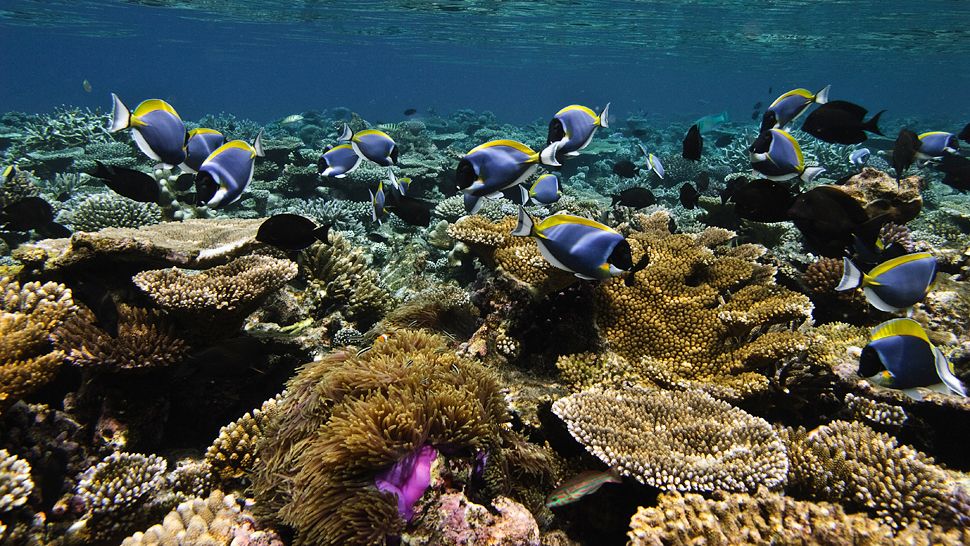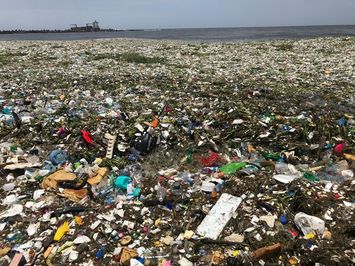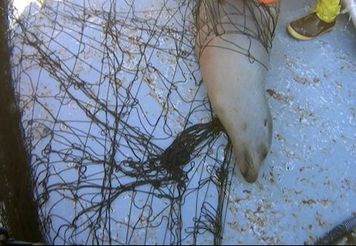|
The taste of the ocean was what did it for me. I was around ten years old and staying with family in Jamaica for the summer. It was a bright, sunny day, perfect for heading to the beach. We took a trip over to Hellshire Beach for a day of swimming and unwinding, but it wasn't the crystal waters that took my breath away that day. It was a meal. A meal of fried fish and festival that would inevitably kick off my years-long love affair with seafood. I was never a huge meat person. The texture of beef was too much on my sensitive teeth, pork was great when it was bacon, and chicken was basic unless deep fried and covered in a sticky, savory sauce. I ate what I thought I needed to for protein, but rarely was I ever craving meat. Seafood on the other hand, I adored, particularly when seasoned with flavors of the island. I loved some pepper shrimp (though my tongue could hardly handle it), spicy jerk salmon and crispy, tangy escovitch fish. When I got to college I met someone who was pescetarian and learned that I could exclude all other animal protein in favor of fish. This kicked off a three year stint of percetarianism that included way, way too much sushi. It was all seafood, all the time, and yes, it was terribly pricey. But this lifestyle was a whole lot more costly than I ever imagined, not only to my wallet but also to my bodily health and on a greater scale, the planet. It wasn't until I'd become vegan and had fallen down a rabbit hole of research that I realized that eating ample amounts of fish and seafood was not as harmless as I'd thought it was. Fish Is NOT The "Healthier" Option What I found appealing about the pescetarian lifestyle was that it seemed healthier. There was no red meat in my diet, so I felt better about my cancer risk. I had a vague understanding that not all fish was the same, so I would opt for wild caught salmon and more "sustainable" options like sardines. I felt like I was prioritizing my health while also making the best choice for the health of our oceans. I was wrong. It's now come to light that basically all fish contain worms and parasites, but it's even more prevalent in the wild caught fish that I used to love so much - and that's not all they contain. The aquatic food chain is filled with heavy metals such as mercury and lead. While this may not be much of a worry for those who only eat fish every once in a while, it should definitely be a concern for health-conscious individuals who make fish and seafood the main source of protein in their diet. There was also a time where I took fish oil supplements because I believed they were necessary to boost my omega-3 intake, but it turns out that fish oil supplementation does not have any protective benefit against heart disease. This was all really just the tip of the iceberg for me. The more I learned about fish and seafood, the more I realized that it was hardly any healthier than the meat and poultry I so eagerly shunned. However, it's the environmental effects of fish consumption that should truly have all of us worried. Our Oceans Are Suffering For most of my life I've heard that we need to "Save The Oceans", a motto that now feels more like an empty platitude than anything else, because in spite of the desperate state of our seas, there hasn't been enough collective mobilization towards actually doing something about it. I wonder: who are we waiting on to save us? This is our planet and yet, we've literally treated it like a trash dump. Currently, there is a patch of garbage that is roughly twice the size of France sitting in the Pacific Ocean. Island nations like the Dominican Republic are being overwhelmed by the trash and debris washing up on their once pristine beaches. While movements to reduce single-use plastic such as straws have picked up a bit of traction, they're misguided at best and ableist at worst. Yes, single-use plastic is a major pollutant, but what never seems to come up in these conversations is the fact that a huge percentage of ocean plastic can be attributed to fishing nets and fishing gear. The painful truth is, our collective appetite for fish and seafood is directly harming our oceans. To make matters worse, we're directly killing hundreds of thousands of other types of sea life via bycatch - the "extra" sea animals that get caught up in these very same nets during fishing and after these nets have been carelessly left in the ocean. We may also eventually come to learn that all of this plastic can have consequences for our health, as scientists are currently researching the health effects of microplastics consumed via seafood. The reaction to such news tends to be shock and then helplessness: 'WOW that's terrible, but what can I do about it? I'm just one person.' Well, we can choose not to support these industries. We can choose to not contribute to the huge demand for fish and seafood by removing them from our diets altogether, and urging those around us to do the same. Call me idealistic, but I do believe that if enough of us can take a stand, the market for the product will eventually disappear. Fish Are Highly Intelligent Beings
If I hadn't been moved by the toxic contaminants or the rapid deterioration of our oceans, learning about the intellectual capabilities of these beautiful creatures might've been enough to do it for me. Fish are capable of using tools, are fast learners, have long memories, and are capable of deception. Additionally, despite old reports to the contrary, fish do feel pain. Personally, I don't abide by notions that other living beings must experience emotions like pain, grief, fear, longing and worry in the exact way that I do in order to be deemed worthy of protection. I no longer believe in archaic notions that I somehow possess a human superiority that gives me permission to harm other living beings, especially not for the sake of food. The plain fact of the matter is, they are living, sentient beings - period! - and I don't want anything to do with ending their lives if I can help it. Something's Gotta Give On one of my recent trips back to Jamaica I went out in a glass-bottomed boat for the first time. At the urging of the driver, we hopped into the ocean with snorkels to get a closer look. What I saw was shocking. What I saw was... not a damn thing. The beautiful coral reefs that were once the prize of Caribbean nations have been slowly but surely decimated. The very same Hellshire Beach that I visited over a decade ago is currently succumbing to pollution, overfishing and the effects of climate change. To me, this is one of the clearest pieces of evidence that our appetites for fish and fun - an appetite I once fondly shared - is ruining our planet. It's 2018, and it's time to evolve. We can split hairs and make arguments about culture, habits, nutritional needs, and the "food chain", but the facts remain clear. If we don't adjust our appetites to meet the needs of our Earth, then it won't matter what we like to eat, what we've eaten for centuries, or where we believe we stand on the "food chain". While I'm sure that our planet isn't going anywhere, I do fear a day when it's no longer safely habitable, and no longer possible for us to call it home. Change is possible, but first we need to have more care for ourselves, our fellow living beings of all kinds, and most of all - our planet.
5 Comments
9/1/2018 10:56:11 pm
It's about time for most of the people to realize that being carnivorous is not healthy anymore. We should conform with the idea of being a vegan because that's socially and physically healthy already. I am not saying that we should become a vegan just because it's the trend, but because it's going to be for our own good. If we will be open with that possibility, everything will fall into a better place. This could also be our simple way of saving the planet. By the way, thank you for this very informative article.
Reply
9/19/2019 09:23:25 pm
This post was very well written, and it also contains a lot of useful facts. Let go to island living in remarkable game sims 4 cheats.
Reply
2/7/2020 03:17:24 am
Muntmeesterpel is a pirate style game that you can use to build your own village.
Reply
7/22/2020 01:03:19 am
It was a bright, sunny day, perfect for heading to the beach. We took a visit over to Beach for each day of swimming and unwinding, but it wasn't the crystal waters that took my breath away that day. it had been a meal. A meal of fried fish and festival that might inevitably begin my years-long romance with seafood.I was never an enormous meat person. the feel of beef was an necessitous of on my sensitive teeth, pork was great when it had been bacon, and chicken was basic unless deep fried and covered during a sticky, savory sauce. I ate what i assumed I needed to for protein, but rarely was I ever craving meat. Seafood on the opposite hand, I adored, particularly when seasoned with flavors of the island.
Reply
Leave a Reply. |
AuthorMy name is Nivea, but you can call me Niv. I'm an independent Plant-Based Nutrition & Fitness Coach hailing from the Bronx, NY. Archives
August 2021
Categories
All
|





 RSS Feed
RSS Feed